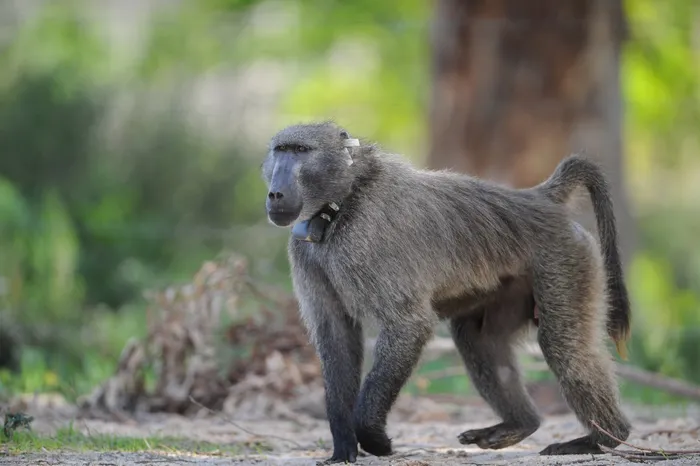Residents oppose rates hike for baboon plan

Residents say they do not want to have to pay extra rates to fund a baboon management plan. Picture: Henk Kruger/African News Agency(ANA)
Residents of areas with a baboon presence say they’re opposed to paying higher rates to keep the primates in check.
The Cape Peninsula Baboon Management Joint Task Team, comprising representatives from SANParks, CapeNature, and the City of Cape Town, held seven public meetings with baboon-affected communities from Monday June 10 to Thursday June 20 to seek solutions.
Special rating areas (SRAs) - where residents pay extra rates for top-up services - were discussed at these meetings, along with other options outlined in a baboon-management plan published in December last year, including fencing, rangers, compliance and law enforcement, and waste management.
About 30 people from Tokai, Zwaanswyk and Constantia joined the meeting at the Wynberg civic centre on Thursday June 13 while about 20 people, mostly from Constantia, met at the same venue on Thursday June 20.
Megan Taplin, park manager for the SANParks Table Mountain National Park, said the Cape Peninsula baboon population had increased by 88% over the past 20 years with nearly 600 baboons counted in June last year.
A combination of strategies was needed to manage the population properly, said Rob McGaffin, the City’s executive director of spatial planning and environment, who led both meetings.
City biodiversity manager Julia Wood said the task team believed baboon-proof fencing coupled with monitoring ranging was a good option, particularly for the northern troop.
Capital outlay, maintenance and environmental authorisations would need to be considered before fences could be put up, she said, adding that the task team would prioritise fences in Scarborough, Simon’s Town and along Price Drive, Constantia, and also consider a proposal by Zwaanswyk residents for their existing baboon-proof fencing to be extended to include Forest Glade.
However, the task team was not certain a fence at Orpen Road was a good idea as it might hamper the movement of other animals, Ms Wood said.
The task team anticipated building the first fence or possibly electrifying one of the existing SANParks fences near Cape Point next year.
Meanwhile, residents are anxious that the City’s contract for the urban baboon programme, with NCC Environmental Services, a private company, is due to expire at the end of the year.
Pam Gorre, of the Tokai Residents’ Association, said residents were ill-equipped to deal with baboons.
“Elderly people and young families who are frightened and don't know who to turn to cannot afford to pay lots of extra rates and taxes. There is a certain level of anger that's coming through about what they've been dealt.”
SRAs would leave communities to “pick up the slack”, said Nicky Schmidt, of Parkscape.
“This is putting responsibility for baboon management onto communities, when it is very clear that the responsibility for baboon management lies solely with the authorities, Cape Nature, SANparks and the City of Cape Town. Bringing this into the communities and making this a community problem is not acceptable at any level, and we've canvassed amongst the communities. The communities have no appetite for this,” Ms Schmidt said.
Sub-council 20 chairperson Xanthea Limberg suggested finding alternative funding sources, such as a special purpose vehicle, or SPV, essentially a separate legal entity set up for a limited purpose, such as the financing of a project.
Ward councillor Carolynne Franklin said an SPV was like an SRA “on steroids” and it would take over baboon management from the City, SANParks and Cape Nature.
“Special purpose vehicle was one of the options in terms of funding that was discussed right in the beginning of this process quite a number of years ago. Why was that never taken any further? Because by now we would be 24 months down the line with a special purpose vehicle that is a hand’s length away from all of these ridiculous regulations of bureaucratic by-laws,” she said.
Related Topics: